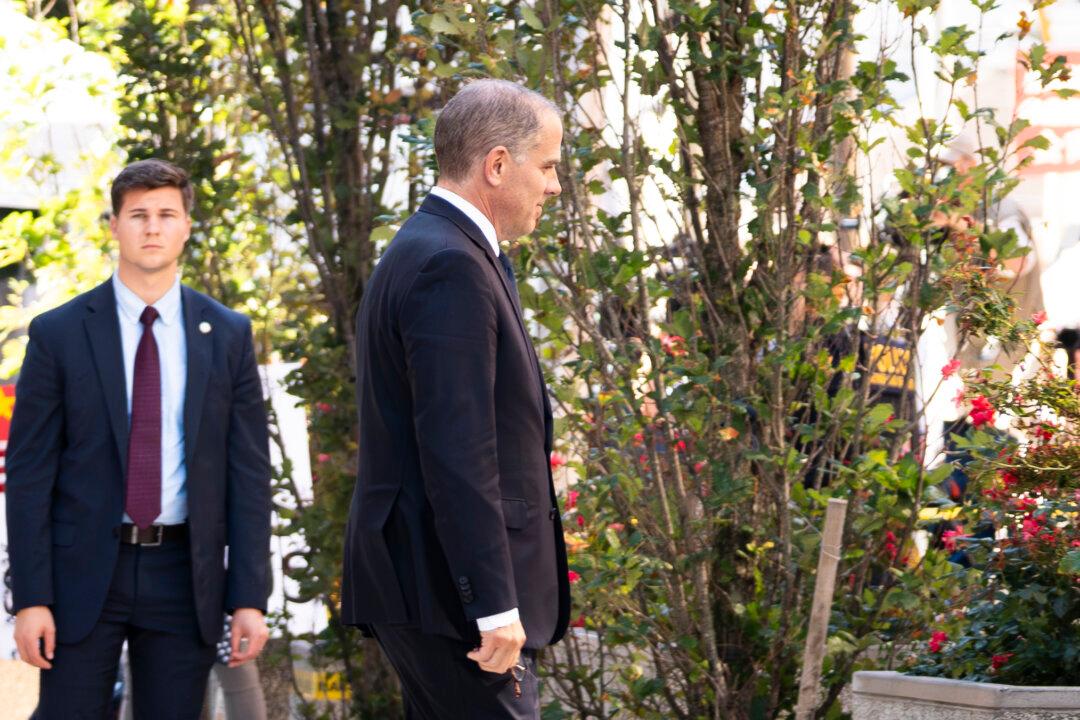On Friday, Hunter Biden’s attorney Richard I. G. Jones, Jr., filed a motion to withdraw from the felony gun charges case against Mr. Biden.
Mr. Jones did not cite a specific reason for the withdrawal and wrote that, having his client’s consent, the withdrawal “will have no material adverse effect on Mr. Biden’s interests.” Attorneys Abbe David Lowell and Bartholomew J. Dalton will continue to represent Mr. Biden.





